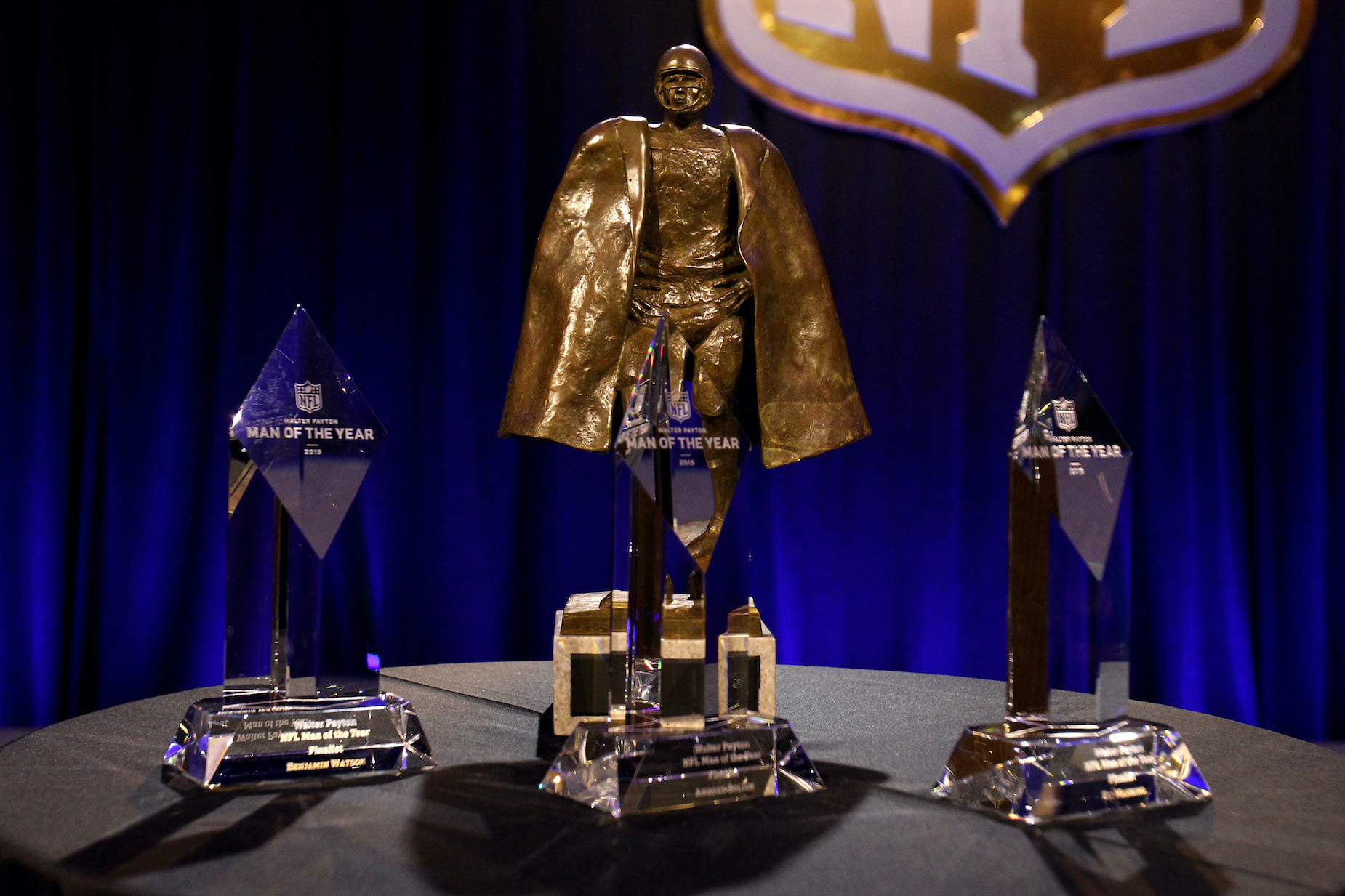NFL
Why Is the NFL’s Man of the Year Award Named After Walter Payton?

At the end of every NFL season, there are a few ceremonial events that lead up to the Super Bowl. Under normal circumstances, the Pro Bowl honors the best players from around the league; then, the NFL Awards ceremony hands out some serious silverware. On that night, the Walter Payton Man of the Year Award is the most prestigious prize that’s up for grabs.
While most NFL fans are familiar with Walter Payton’s impressive football career, the Man of the Year Award didn’t carry his name until 2000. So what inspired the NFL to make that change?
Walter Payton was a legendary NFL player
RELATED: Chicago Bears Legend Walter Payton Once Shot a Man in a Nightclub
In the modern NFL, running backs have fallen somewhat out of favor thanks to franchise quarterbacks and athletic wide receivers. Walter Payton, however, had enough talent to thrive in any era.
Payton played his college football at Jackson State and, despite the school’s relatively small stature, quickly made a name for himself. After a solid, if unremarkable freshman year, Sweetness exploded for 781 rushing yards and 15 touchdowns as a sophomore. By the time he graduated, the running back had piled up 3,600 yards and scored 63 rushing touchdowns.
Payton then entered into the 1975 NFL draft, joining the Chicago Bears as the fourth-overall pick. Similar to his time at Jackson State, he started off slowly before growing into a star.
In total, Payton spent 13 seasons in the pros, all of them with the Chicago Bears. In addition to chewing up more than 21,000 total yards from scrimmage and scoring 125 total touchdowns, Sweetness won a Super Bowl title, was named the 1977 NFL MVP, and made seven All-Pro First-Teams. He also took home the NFL Man of the Year Award that would eventually carry his name.
The NFL legend tragically died in 1999
RELATED: Cowboys Great Emmitt Smith Kept a Promise to a Dying Walter Payton
During his time on the football field, Walter Payton seemed like a real-life superhero. Away from the gridiron, though, the running back, unfortunately, met an untimely end.
In February 1999, Payton announced that he had primary sclerosing cholangitis, a rare liver disease. Rather than retreating from public life, though, he stepped into the spotlight. While it was too late for him to receive a transplant, Payton became a major advocate for organ donation.
That November, Payton succumbed to his illness, ultimately dying of bile duct cancer. He was only 45 years old at the time, and the NFL was unsurprisingly shaken to its collective core.
The NFL’s Man of the Year award was quickly renamed in honor of Walter Payton
RELATED: The Kansas City Chiefs Had 2 Players Win This Prestigious Award
When Walter Payton died, it seemed clear that the NFL needed to do something to commemorate the legendary running back. Within a few months, they had found the perfect way to do so: with the Man of the Year Award.
In January 2000, then-NFL Commissioner Paul Tagliabue announced that the annual award would be rechristened the Walter Payton NFL Man of the Year Award. “Walter understood that athletes should be leaders, not just on the field, but in the neighborhoods,” Tagliabue said, according to the Chicago Tribune. “He understood also that his values, teamwork, respect for the adversary, incredible effort in the face of adversity, could inspire and unify millions and millions of people from many, many diverse walks of life.”
While Payton won the award in 1977, he also lived up to its standards in his last days. As mentioned above, the running back became a public advocate for organ donations. While the running back couldn’t be saved, his efforts helped others get the help they desperately needed. As documented by ESPN, his family kept working to increase organ donation awareness, even after Sweetness’ death.
Every NFL season, there are plenty of awards and honors that are up for grabs. Few, however, mean as much to the Walter Payton Man of the Year Award.
Stats courtesy of Pro-Football-Reference











